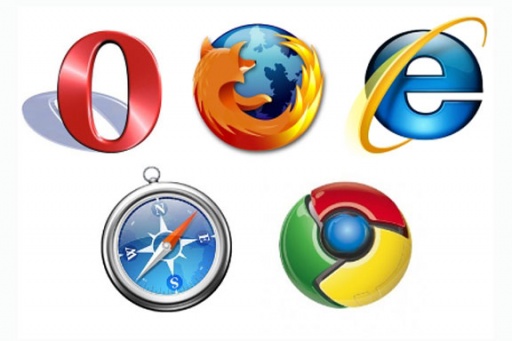The Pros and Cons of the Top Internet Browsers
Many of us never even consider switching internet browsers. The one we are used to is like an old friend – familiar and reliable. Despite your determination to stay stalwartly committed to them, sometimes you just have to accept that there could be something better out there. For this reason, we have taken the time to review and assess five of the most popular browsers.
Google Chrome
With close to a 54% usage share of all browsers, both desktop and mobile, Chrome is a dominant force in internet browsing. But is it worthy of such a prestigious mantle? For the most part, yes. Chrome’s sleek, minimalist design allows the web page itself to seize the spotlight. And rightly so, the reason we use internet browsers is, after all, to look at web pages, and the Chrome browser does an unparalleled job of fading into the background. Chrome’s stability, as well as its unmatched range of extensions, including those from j2team.dev, makes it arguably the best browser out there. The only issue we can raise with Chrome is its demanding use of resources, which machines with low RAM may potentially struggle with.
Safari
Thanks mainly to Apple’s stranglehold on portable devices, Safari ranks second for usage amongst all internet browsers with a 15% share. Safari’s speed and interface is a match for any of the best browsers. It also makes interesting use of an optional sidebar that brings up bookmarks, social media and a reading list. Where it falls down is its lack of adaptability and customisability.
Firefox
Over the last decade, the once perennial leader Mozilla Firefox has fallen from its pedestal to a lowly third. Firefox’s interface remains cluttered – all of its competitors have since opted for slicker, cleaner designs. Sticking with separate search and URL boxes makes Firefox feel obtuse and unwieldy. In spite of all of this, Firefox’s speed is its redeeming feature. According to TopTenReviews, it tops the charts for average start up time and navigation time.
Internet Explorer
The victor of the first browser war, Internet Explorer’s control has since dwindled dramatically. The latest incarnation of Internet Explorer, 11, is a smartly-designed and powerful browser. By demanding less RAM and CPU for equivalent pages than it would on Chrome or Firefox, Internet Explorer makes itself an attractive choice for those using machines with limited resources. However, it is not quite as adept at handling add-ons and extensions, Google’s V8 benchmark rates it as lacklustre.
Opera
Even though it lags behind all four of its biggest competitors in terms of popularity, it is no reason to dismiss Opera. Easily the most underrated browser, Opera has a simple, easy to use interface and a handy in-built ad-blocker. What distinguishes it from its rivals however, is the Opera Turbo feature. Ideal for when your broadband speed isn’t up to scratch, Turbo compresses your web traffic by routing it through Opera’s servers, giving your browsing speed an almighty jolt.
With the knowledge you have absorbed from this post, are you still going to remain faithful to your current browser, or are you now considering a switch?















